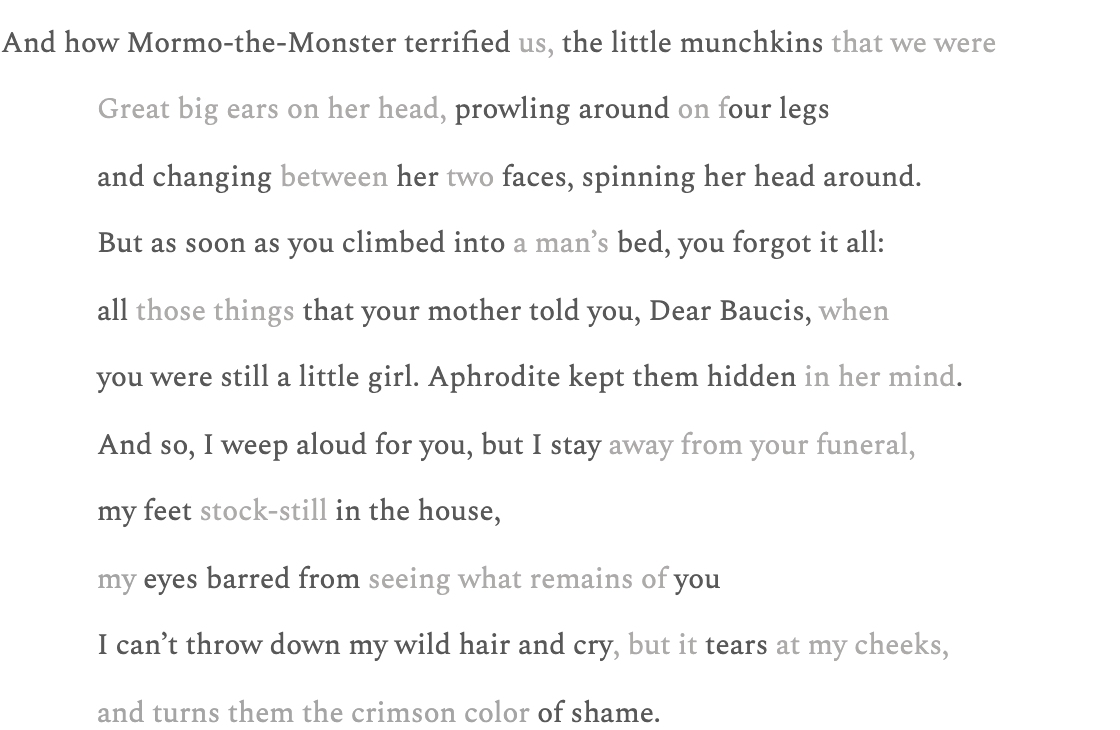Sometime in the early 6th century BCE, a 19-year-old girl living on an island somewhere in the Aegean Sea wrote a 300-line poetic lament to a lost childhood friend that took the Ancient Mediterranean by storm. Erinna’s poem—a paean, written in the dactylic hexameter of Homeric Epic—was entitled The Distaff and was dedicated to a girl named Baucis. Whilst Erinna’s poem was sadly lost to history, her legacy was not, and the sweetness of her verses earned her the nickname μέλισσα, Greek for ‘honey-bee.’ Despite the fact that nobody was actually reading her work, Erinna’s name retained its cultural currency for over 2500 years, until, in 1928, Italian archaeologists excavating at Oxyrhynchus stumbled upon a tattered piece of papyrus on which were inscribed fifty-four, half-legible lines; all pointing to Erinna’s missing opus.
![]()
![]()
*
![]()
![]()


*


India Halstead teaches, researches and publishes work on Classical Mythology, Literary Translation, Gender and Sexuality and Poetry and Poetics. Under the supervision of Professor Emily Wilson, recipient of the MacArthur “Genius” grant for her translation of Homer’s Odyssey, she began writing poems of her own this summer. She was awarded the Laurel Wreath at The 2020 International Poetry Olympics run by Cerasus Press, with whom she is now working to publish a first solo collection
Read India Halstead on translating the poetry of Corinna and Erinna.
Read India Halstead on translating the poetry of Corinna and Erinna.
